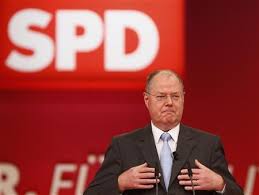
Merkel’s Grand Coalition: A new chance for Germany’s social democracy
Fears over a grand coalition are again haunting Germany’s social democracy. As was the case in 2005, the new coalition is comprised of the Christian Democratic Union (CDU, together with the CSU, its Bavarian pendant) and the Social Democratic Party (SPD). Such a composition worries many Social Democrats given the last experience with a coalition in 2009 when the SPD vote share shrank by 12.2 per cent. Some Social Democrats are even doubtful about whether the SPD can survive another grand coalition with Angela Merkel’s CDU.
While the pessimism is understandable, it is misplaced. Another grand coalition will not necessarily produce negative consequences for Germany’s Social Democracy, for three reasons.
First and most importantly, there is no clear pattern whereby the smaller coalition partner loses in a grand coalition. The two previous grand coalitions at the national level offer mixed examples. While the last experience was surely painful for the SPD, it actually benefited from the first grand coalition from 1966 to 1969. Despite some unpopular decisions in the Social Democratic camp at the time, such as the emergency laws (Notstandsgesetze), the SPD received part of the credit from its association with several governmental accomplishments, most notably the economic policies that led to the end of Germany’s first economic recession after World War II. At the time, the SPD had managed to find the right balance between its own political autonomy and participation in the grand coalition, acquiring a reputation for pragmatism and responsibility. This was most embodied by Karl Schiller, the minister of the economy, Herbert Wehner, the party chairman, and Helmut Schmidt, the leader of the SPD’s parliamentary group. Despite being the junior partner in a grand coalition, the SPD thus succeeded in proving its worth. This, in turn, helped the Social Democrats take over as the majority party in 1969, putting an end to 20 years of Christian Democratic dominance.
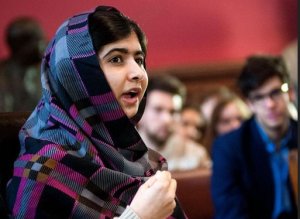
Malala’s Visit to Oxford
Pakistan has always been a divided nation—divided between the forces of progression and regression, between secularists and the rest, between those who believe in social equality and those who don’t. Three days before Pakistan gained independence in 1947, Jinnah, the founding father, made clear that religion would have “nothing to do with the business of the state.” Yet, within a year after his death, the Mullahs prevailed. TheObjectives Resolution, passed by the Constituent Assembly in 1949, laid the basis of an Islamic Republic where religiosity has progressed with every passing decade, culminating in its current violent form.
Resistance to religiosity in the country has also been constant. Zulfikar Ali Bhutto, the first elected prime minister, attempted liberal socialism in the 70s, but had to succumb to the religious right and was finally hanged by an Islamist general. His daughter, Benazir, struggled for progressive politics since the 80s, until her fateful assassination in 2007.
The alternatives are well known. In their attempt to impose Sharia in the past decade, Taliban extremists have silenced thousands of lives. Yet saner voices continue to emerge to champion national struggle against religious bigotry.
Malala Yousafzai, the survivor of Taliban assassination bid last year, is the latest exponent of this just cause. With the late Benazir as her role model, the 16-year-old girl from a rural town says she wants to become the prime minister of Pakistan.
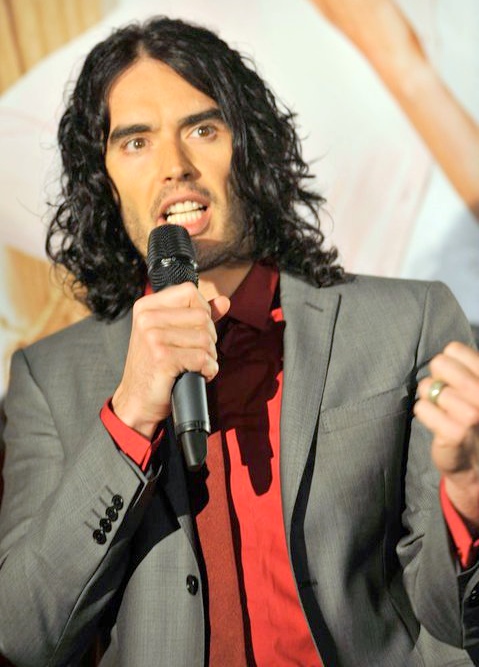
Russell Brand’s socialist revolution
Russell Brand, the British comedian, used a guest editorship of the 100-plus-year-old leftist magazine New Statesman last month to call for a “total revolution of consciousness and our entire social, political and economic system.” Capitalism, and the ideology that sustains it — “100 percent corrupt” — must be overthrown. He also doesn’t think people should vote, as partaking in democracy would further the illusion that a rotten system could change. It was a call, albeit chaotically phrased, for a socialist revolution.
Born into the middle class, Brand’s childhood was disturbed: his photographer father left when he was six months old, his mother developed cancer when he was eight (but survived), he left home in his mid-teens and took to drugs. He later became a star, delighted in promiscuity, married the singer Katy Perry for a year and a half and grew modestly (by star standards) rich, with an estimated net worth of $15 million and a lovely new Hollywood millionaire bachelor’s pad.
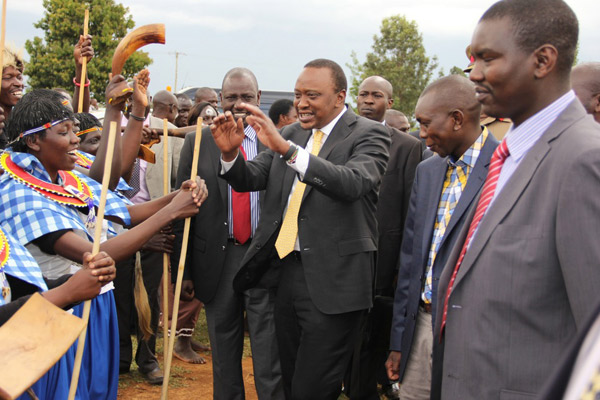
The lack of trust at the heart of Kenya’s democracy
Trust is critical to democracy. Citizens that trust each other not to exploit the system and more likely to pay tax and to follow the rules themselves. Leaders who trust each other are less likely to resort to violent strategies and more likely to accept the results of controversial political processes. As a result, the lack of trust at the heart of Kenyan politics is a major barrier to the consolidation of democracy.
Kenyans do not trust each other as much as Tanzanians. The World Values Survey, which asks citizens around the world about their activities, beliefs and opinions, has consistently found that Kenyans are less trusting than their counterparts on the other side of the border.
Indeed, compared to many societies in Africa, Kenyans are less likely to say that they trust people they don’t know, and less likely to say that they trust people they do know.
At the same time, domestic opinion polls regularly find that a majority of Kenyans lack trust in some of the county’s most important democratic institutions.
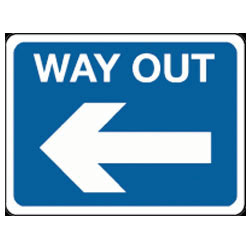
How Europe exited its crises: is there a federal future for Europe?
Over the past four years some of us may have forgotten that the financial crisis did not start in Europe, but in the USA. If it makes sense to ask ourselves where it all started, it is even more relevant for us to understand what happened on this side of the Atlantic. It is in fact in Europe that the crisis (or the crises) has found a fertile ground to develop and unravel the Eurozone. “Spread”, “bailout”, “rating agency” have become terms that Europeans have become acquainted with, while austerity policies have hit them as it has not happen for decades.
In addition, the crisis came at a time of extreme volatility in global, European and national politics and has arguably contributed to accelerate some trends which were already starting to appear at the beginning of the century. The consolidation of Asia as the new engine of economic growth; the rise of new economic powers such as the BRICS; the negotiations of extensive Free Trade Agreements in an attempt to benefit from access to growing markets and to US to maintain an upper hand in setting global standards (among the others the EU and South Korea FTA and the on-going negotiations between EU and Canada, and the EU and the USA). Domestically the EU is also facing new tensions: a sharp rise of euro-scepticism and of nationalist movements has been registered in many European countries, including Italy, France, Germany, Hungary and the UK, with the UK arguing for a referendum on its own EU membership in 2017. Separatist movements are getting stronger in several regions including Scotland, Catalonia and Flanders. Last but not least, socio-economic challenges are increasingly evident, with unprecedented rates of youth unemployment, an ageing population and the European welfare systems increasingly under pressure.
Together these external and domestic challenges, mixed with the aftermath of the Eurozone crisis in all its facets, constitute an explosive mix. As we are approaching a key electoral year, with the elections of the European Parliament as well as with national elections in several countries including Germany, it is about time to draw some lessons from what happened in Europe and to envisage a possible way to move forward.

Can you buy a Police Commissioner? Spending at the 2012 Police and Crime Commissioner elections suggests it depends on the party
Just under a year ago the first Police and Crime Commissioner elections were held in England and Wales. Two weeks ago, the Electoral Commission released data on candidate donations and spending at those elections. In total candidates spent £2.1 million – an average of £11,220 each. For comparison candidates at the 2010 general election only spent £6,284 each (but this doesn’t count party spending, which was much lower at the Police Commissioner elections). Media reporting of the data tended to concentrate on the more extreme cases of candidate spending – the Conservative candidate who spent £98,751 and didn’t win, or the independent candidate who (officially at least) didn’t spend a single penny and won.
The casual observer might then be forgiven for thinking that candidate spending had no impact on the outcome of the Police Commissioner elections. However, as any good social scientist will tell you, outliers often obscure trends rather than indicate them. Campaign spending is a much studied topic in political science and the consensus is that spending more money gets more votes. One of the key insights about campaign spending is that it tends not to change voters’ minds about who to vote for but rather whether or not they bother turning out to vote at all.
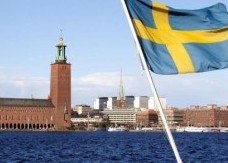
Sweden’s Social Democrats: the insider-outsider dilemma
The most important event in Swedish party politics in the past twenty years is the decline in the electoral fortunes of the Social Democratic Party.
For most of the post-war period, electoral support for the Social Democrats hovered around 45 percent. As late as 1994, in fact, the Social Democrats won 45.3 percent of the vote. Their best election since then was in 2002 (39.9 percent). In 1998, they received 36.4 percent; in 2006, 35.0; in 2010, only 30.7.
What sets the elections of 2006 and 2010 apart is that the combined support for the center-left fell sharply. The Social Democratic losses in 1998 were associated with a surge in support for the Left Party, allowing Göran Persson to remain as prime minister after the election. Between 2002 and 2010, by contrast, the support for the Left Party and the Greens did not increase at all; the combined support for the center-left therefore fell from 53.0 to 43.6 percent.
These are momentous changes, and scholars and political commentators will no doubt puzzle over them for years to come. In a recently published paper, we show that an important part of the explanation is that the Social Democrats have become unable to reconcile the demands of two groups of voters that have traditionally sup-ported them: on the one hand labour market “outsiders,” who have insecure jobs or no jobs at all; on the other hand labour market “insiders” with stable employment. The deep economic crisis in the 1990s changed the Swedish labour market. It greatly increased the number of outsiders, rendering the latent conflict between insiders and outsiders salient.
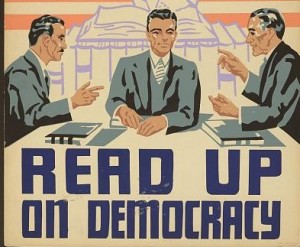
Finding the future of democracy in the past
There are two different questions that might be asked about contemporary democracy: how did we get here? And where else might we have tried to get? A great deal of the ‘history of democracy’’ is written in the former mode, with the classical world and subsequent periods being identified as steps in a path towards a modern democratic world in which the people elect their governments and hold them accountable to greater or lesser extents. In Britain, the normal staging posts identified are the Levellers, the 1790s, the Great Reform Act, and the suffragist movement. In America they are the Declaration of Independence in 1776, the Federal Constitution of 1788, Jacksonian Democracy in the 1830s, the Civil War, and the Voting Rights act of 1965. In France, the French Revolution, 1830, 1848, 1871, 1836, and 1944. Ireland has far fewer dates!
This sort of history is in effect being written backwards; it is a history of the present and how we got to it, not a history of the past, and what we might have fought for. One mark of this approach is that relatively little attention is given to the language people actually used; if we think their aspirations were democratic then it is assumed that we can describe their goal as democracy, even if they didn’t use the word. Moreover, since we link democracy to elections, we assume that the history of democratic aspiration was primarily a story of struggle over the suffrage. But much of this does violence to the evidence.









